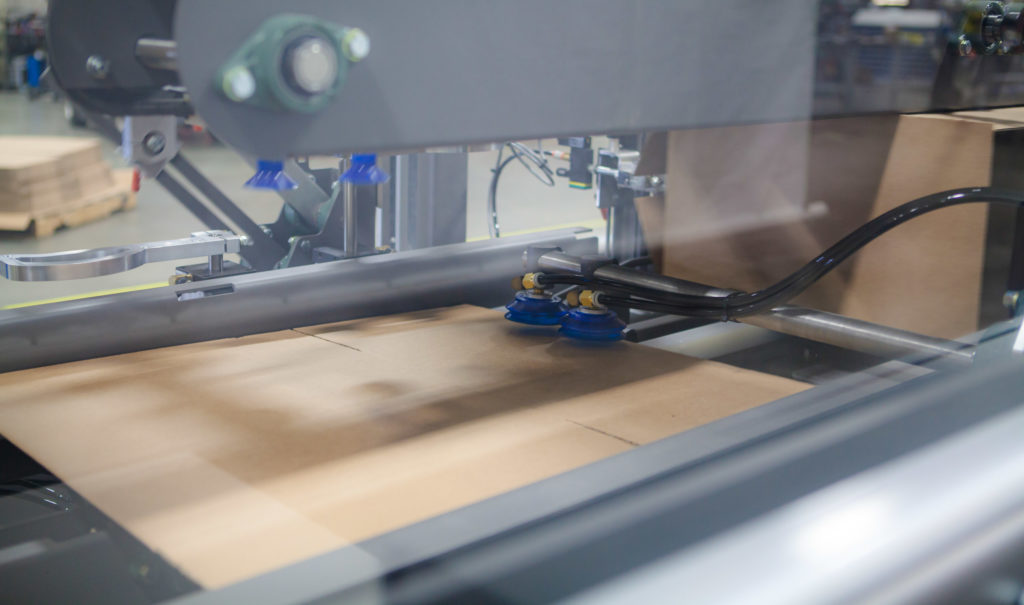Spokane, WA – Exhibiting at Pack Expo Las Vegas September 23-25 in booth C-3106, Pearson Packaging Systems announces a new way for customers to pay for automated packaging equipment, even when their capital budgets are limited.
The new purchasing method, Machines as a Service (MaaS), allows customers to use Pearson case erectors, sealers and compact palletizers as part of their operation, but without the upfront equipment investment. In this scenario, Pearson retains ownership of the machines, while customers pay for output – erected, sealed or palletized cases.
Pearson President and CEO, Michael Senske, says MaaS is an ideal option for companies who prefer to pay for automation incrementally, or who have an immediate need for end-of-line machinery, but don’t have approved funding. He explains that by eliminating the upfront expense of machinery, manufacturers can devote their resources to other projects that improve operations or differentiate their businesses – like new product development.
Pearson will ship MaaS equipment to customer facilities, offer installation and start-up support, and train operation and maintenance personnel as part of the package. Machine users pay an established price per case, with the option to purchase the machines outright at any point during the contract term if their circumstances change.
The business model is made possible with the use of blockchain technology, a secure and uneditable digital ledger that logs machine output and calculates transactional payments using a third-party platform. Plus, MaaS users can access data beyond basic case counts – information relating to fault types and counts, and uptime and downtime durations. This data is useful in identifying month-over-month trends, proactively spotting potential issues before unexpected downtime occurs, or highlighting the need for additional operator training. Maintenance notifications also support machine users’ plan for routine upkeep tasks.
According to Senske, the interests of customers and OEMs become more closely aligned under the MaaS business model, since neither party is as profitable when downtime situations occur. He continues to explain that troubleshooting efforts will be facilitated and response times can be executed more swiftly with MaaS: automatic notifications are sent to Pearson’s service department, alerting them when excess faults, network outages, or other performance issues occur.
Senske summarizes, “This is by no means the perfect option for every manufacturer. But customers have told us time and time again about the challenges they face obtaining funding for automation projects, and this offering was specifically designed to give those customers more flexibility in regards to financing.”
As one of the largest shows in the industry, Pack Expo is an ideal outlet to communicate MaaS to the secondary packaging market. “People come to this event looking for what’s new,” explains Pearson Product Manager Tim Hill. “Pearson has always differentiated itself from the competition by thinking outside the box and taking risks, and we’ll continue to do that to ensure our offerings meet the needs of our customers.”

